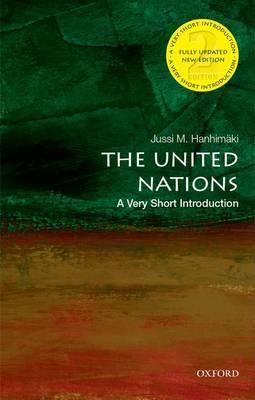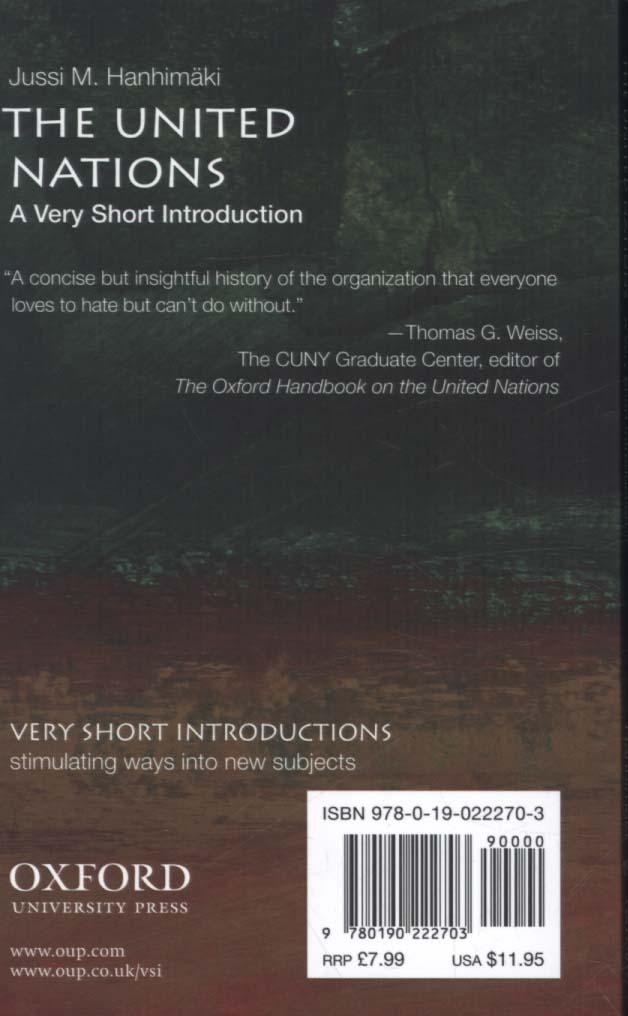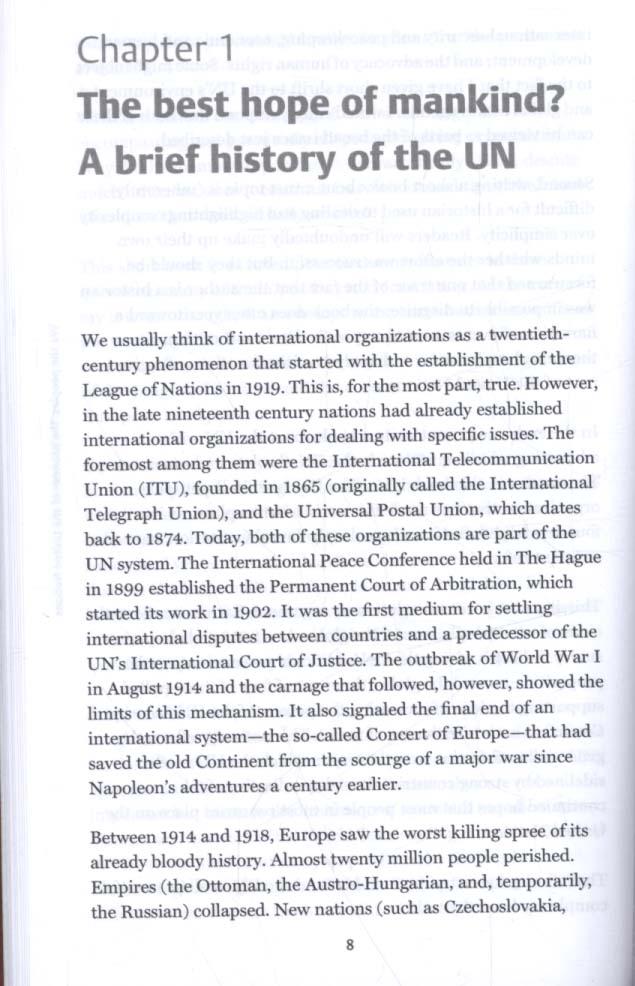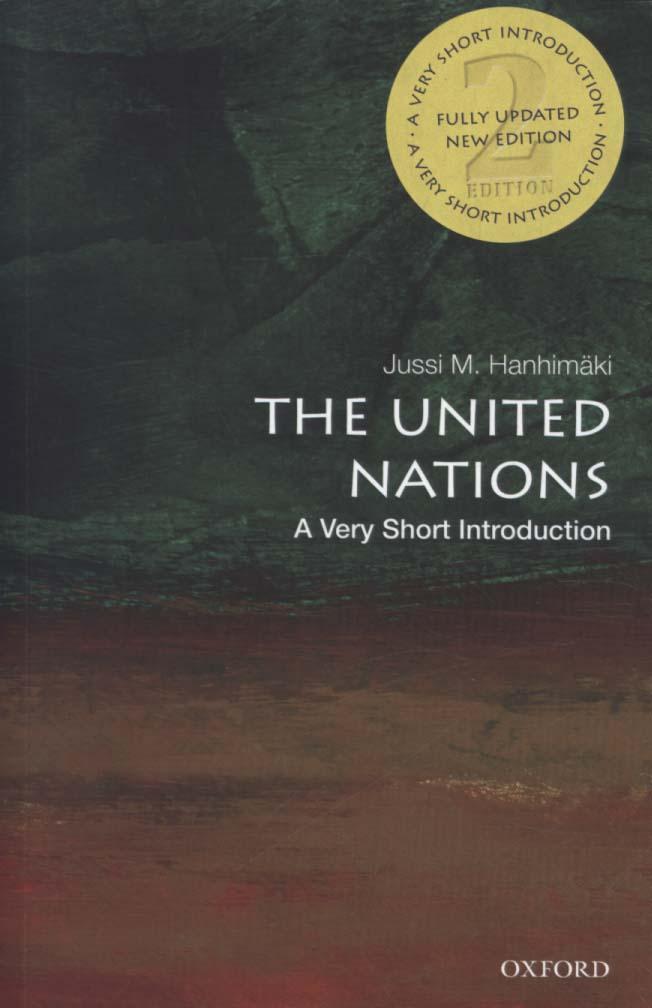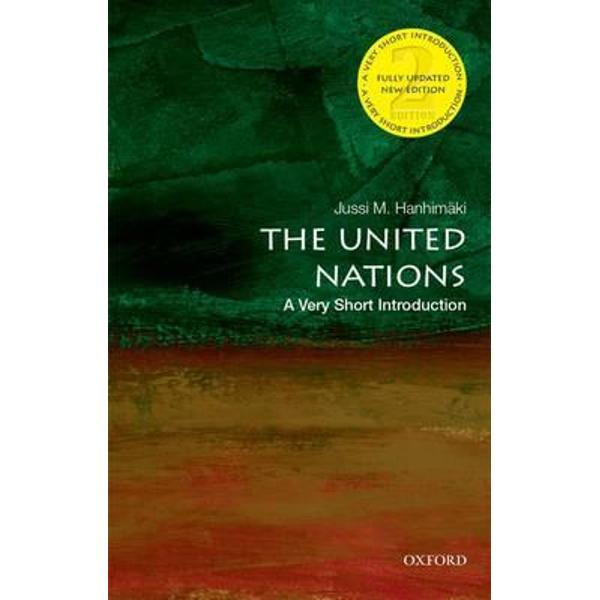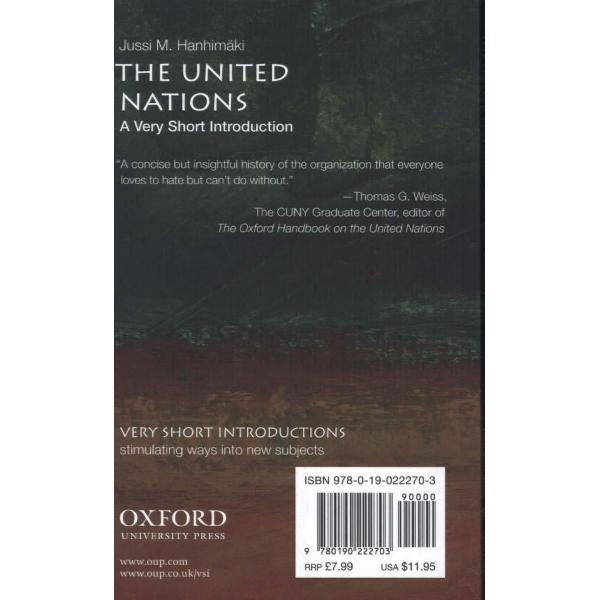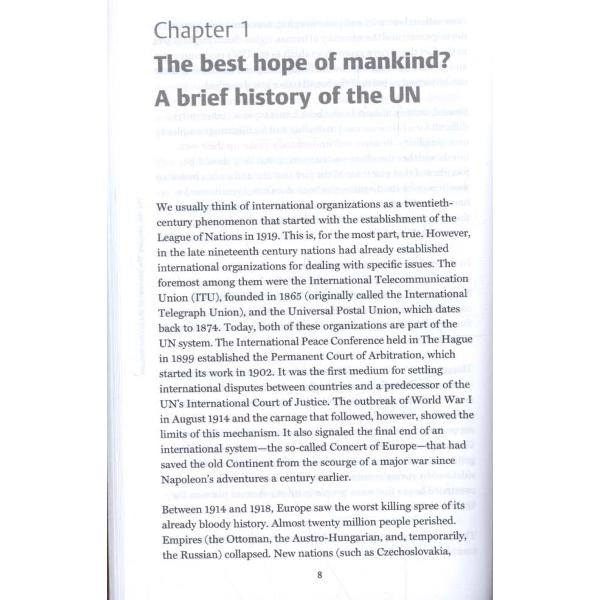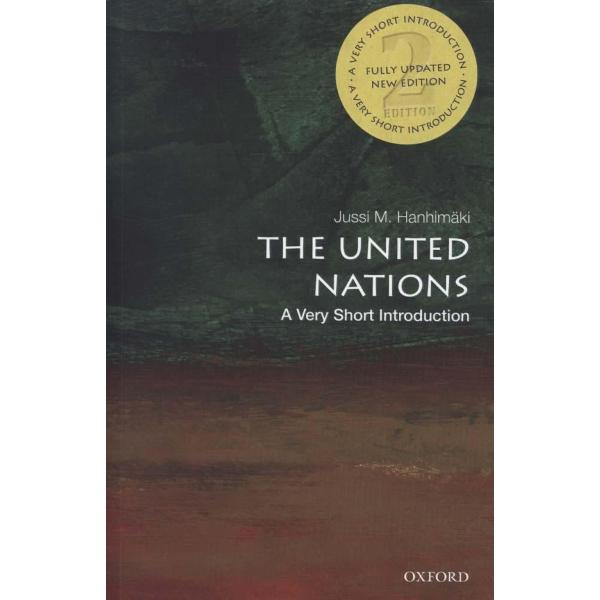United Nations: A Very Short Introduction
United Nations: A Very Short Introduction
Council in action and peacekeeping efforts while exploring its most recent successes and failures.
After a brief history of the United Nations and its predecessor, the League of Nations, Hanhimaki examines the UN's successes and failures as a guardian of international peace and security, as a promoter of human rights, as a protector of international law, and as an engineer of socio-economic development. This updated edition highlights what continues to make the UN a complicated organization today, and the ongoing challenges between its ambitions and capabilities. Hanhimaki also
provides a clear account of the UN and its various arms and organizations (such as UNESCO and UNICEF), and offers a critical overview of the UN Security Council's involvement in recent crises in Iran, Afghanistan, Iraq, Ukraine, Libya, and Syria, and how likely it is to meet its overall goals in the future.
Regardless of its obstacles, the UN is likely to survive for the foreseeable future. That alone makes trying to understand the UN in all its manifold - magnificent and frustrating - complexity a worthy task. With this much-needed updated introduction to the UN, Jussi Hanhimaki engages the current debate over the organizations effectiveness as he provides a clear understanding of how it was originally conceived, how it has come to its present form, and how it must confront new challenges in
a rapidly changing world.
ABOUT THE SERIES:
The Very Short Introductions series from Oxford University Press contains hundreds of titles in almost every subject area. These pocket-sized books are the perfect way to get ahead in a new subject quickly. Our expert authors combine facts, analysis, perspective, new ideas, and enthusiasm to make interesting and challenging topics highly readable.
PRP: 80.54 Lei
Acesta este Prețul Recomandat de Producător. Prețul de vânzare al produsului este afișat mai jos.
72.49Lei
72.49Lei
80.54 LeiLivrare in 2-4 saptamani
Descrierea produsului
Council in action and peacekeeping efforts while exploring its most recent successes and failures.
After a brief history of the United Nations and its predecessor, the League of Nations, Hanhimaki examines the UN's successes and failures as a guardian of international peace and security, as a promoter of human rights, as a protector of international law, and as an engineer of socio-economic development. This updated edition highlights what continues to make the UN a complicated organization today, and the ongoing challenges between its ambitions and capabilities. Hanhimaki also
provides a clear account of the UN and its various arms and organizations (such as UNESCO and UNICEF), and offers a critical overview of the UN Security Council's involvement in recent crises in Iran, Afghanistan, Iraq, Ukraine, Libya, and Syria, and how likely it is to meet its overall goals in the future.
Regardless of its obstacles, the UN is likely to survive for the foreseeable future. That alone makes trying to understand the UN in all its manifold - magnificent and frustrating - complexity a worthy task. With this much-needed updated introduction to the UN, Jussi Hanhimaki engages the current debate over the organizations effectiveness as he provides a clear understanding of how it was originally conceived, how it has come to its present form, and how it must confront new challenges in
a rapidly changing world.
ABOUT THE SERIES:
The Very Short Introductions series from Oxford University Press contains hundreds of titles in almost every subject area. These pocket-sized books are the perfect way to get ahead in a new subject quickly. Our expert authors combine facts, analysis, perspective, new ideas, and enthusiasm to make interesting and challenging topics highly readable.
Detaliile produsului
S-ar putea să-ți placă și
De același autor
Istoricul tău de navigare
Acum se comandă
Noi suntem despre cărți, și la fel este și
Newsletter-ul nostru.
Abonează-te la veștile literare și primești un cupon de -10% pentru viitoarea ta comandă!
*Reducerea aplicată prin cupon nu se cumulează, ci se aplică reducerea cea mai mare.


Salut! Te pot ajuta?
X







